This piece is part of the Taiwan-U.S. Quarterly Analysis series, which features the original writings of experts from the United States and Taiwan, with the goal of providing a range of perspectives on developments relating to Taiwan.
Taiwan got a burst of attention earlier this year when The Economist labeled the island “the most dangerous place on earth.” Many Taiwan residents rolled their eyes at that characterization, but it struck a chord with readers accustomed to hearing Taiwan referred to as a “flashpoint” and the place “most likely to spark a war between the U.S. and China.”
The idea that Taiwan is on the verge of a military conflict with the People’s Republic of China (PRC) is widespread. In March, Admiral Phil Davidson, the outgoing commander of the U.S. Indo-Pacific Command (INDOPACOM) forces, told the Senate Foreign Relations Committee that the PRC was likely to attack Taiwan within six years. The reason for Taiwan’s perilous condition is typically put down to two factors. First, the PRC government’s determination to unify — or annex, if you prefer — Taiwan and merge it into the PRC, and second, the Taiwanese people’s unwillingness to be unified — or annexed.
A recent survey shows that Americans are clearly worried about the threat to Taiwan. Yet strategic discussions on the potential for conflict leave out crucial voices in the matter: do people on Taiwan share those concerns about imminent military conflict?
Many U.S. officials tend to think that Taiwan residents are too nonchalant about this looming threat. Common wisdom often has two connected explanations. The first is that after 70 years, the military threat is so routine that most Taiwanese people no longer notice or react to it. The second explanation is that Taiwanese people believe an attack would be irrational, and is thus unlikely.
But common wisdom aside, how do people on Taiwan actually see the PRC’s military intimidation tactics? Do they believe military conflict is a possibility? How do their views align with American officials’ conventional wisdom?
In May 2021, we surveyed 1000 Taiwanese residents and found that, contrary to popular belief, the Taiwanese are not only far more cognizant of military activity than we might think, but their concerns about potential conflict are also stronger than we typically perceive.
Taiwanese are not immune to threats of war
While it is true that Taiwanese people live their lives largely unhindered by the looming threat of war, they are by no means unaware of that threat. In our study, 57.6% of respondents said they worry that war is a distinct possibility. When broken down by party identification, we found both a majority of DPP and KMT respondents are concerned about a possibility of war. KMT respondents however are more worried about war than DPP respondents, but both parties’ respondents share the concern, showing that that fear of military conflict spans Taiwan’s political aisle despite a typically high degree of partisanship.
The fear of conflict is not only limited to older Taiwanese people who remember when the two sides of the Strait had no direct contact and even considered themselves at war. Breaking the responses down by age, we find a striking consistency in responses across age groups. While respondents above 50 are slightly more worried about the possibility of war, younger generations all maintain about the same level of worry. This finding pushes back against portrayals of Taiwanese youth as naive or less aware of Taiwan’s political realities.
Rising military pressure, rising concern – but no sign of panic
We also asked whether respondents felt military threats from China had increased in the previous six months. Instances of military intimidation — intrusions into Taiwan’s airspace, military exercises in the Taiwan area — had in fact increased in that period, but we were curious to know whether Taiwanese people noticed or felt their increased numbers. They did.
An overwhelming majority – 79% – of our respondents recognized that the frequency of Chinese military actions aimed at Taiwan had increased in the previous six months. This finding indicates that Taiwanese people can feel a difference in the relative level of peace within the Taiwan Strait from before the escalation began to today. Although there is not often a large reaction from civil society when the PRC flies warplanes through Taiwan’s Air Defense Identification Zone (ADIZ), these occurrences are certainly being noticed by Taiwan’s domestic audience.
Noticing that the PRC has stepped up its military pressure has not made most Taiwanese people fearful that an attack is imminent. When asked whether they are more worried than they were six months ago, only 30% of respondents said yes. Asked whether they think Xi Jinping is more likely or less likely to attack Taiwan than he was five years ago, 46% of respondents said he is more likely, while 45% said the probability hasn’t changed.
These results show that Taiwan residents are aware of, but do not necessarily worry about immediate military conflict with the PRC. They also are far more aware of increased military pressure from the PLA than many U.S. policymakers seem to realize. Not all Taiwanese people, however, internalize these threats as dire. They are worried, but the majority do not think it’s time to panic.
As the PRC has ramped up the pressure on Taiwan in recent years through both its rhetoric and in its military activity, Tsai Ing-wen’s government has responded by seeking to upgrade Taiwan’s military capabilities and to garner more civil society support for the armed forces.
Our results offer a mixed review. Despite President Tsai’s efforts, Taiwanese people do not see the island’s defense capabilities improving. When asked how they feel about their government’s own ability to defend Taiwan in light of Beijing’s increased intimidation, respondents are pessimistic. Barely a quarter – 25.8% – see Taiwan’s defensive capacity improving, while 35% believe Taiwan is less able to defend itself than before, and 40% say there is no change in Taiwan’s defense capabilities. Clearly, further efforts are needed to persuade Taiwan residents that their military is fully capable of protecting them.
Downplaying the U.S. factor
Previous studies have found that a key factor in whether Taiwanese people believe they can be successfully defended is whether they think the U.S. will step in to help. Media and expert reports drawing parallels between Afghanistan and Taiwan have resurfaced the debate over whether the U.S. can and will come to Taiwan’s aid in the event of military conflict.
President Tsai has tackled that question head on. Instead of encouraging her people to count on an outside protector, she is emphasizing that Taiwanese people must be able to protect themselves. To do so, she advocates allocating more resources to defense and also encouraging the military to demonstrate to Taiwan residents that it is capable of defending them.
“It is not an option for Taiwan to not take any actions on its own and merely rely on others to protect us,” Tsai wrote in an August 18 Facebook post. She added, “Taiwan’s only option is to make itself stronger, more united and more determined to defend itself.”
Taiwanese people recognize the PRC as a threat. But they do not have high confidence in their own armed forces. Still, their pessimism is not preventing them from, for example, investing billions in new semiconductor manufacturing capacity. For Americans who see Taiwan through the lens of strategic conflict, this is hard to understand. Why aren’t Taiwanese people as worried about their security as we are?
Our research suggests that while conflict in the Taiwan Strait is possible, few Taiwanese people believe it is imminent or inevitable. Nonetheless, it is on the minds of both the Taiwanese government and the Taiwanese people. The silver lining for the Tsai government is that concern about military threat is shared across party lines and age groups. It is rare that civil society converges across these demographics. That finding is a positive sign that there could be political support for strengthening military preparedness. Persuading Taiwan residents to support the military, however, remains an important challenge for the Tsai administration and its successors.
In sum, Taiwan residents may not react as strongly as Americans to Beijing’s escalating intimidation, but that is not because they are unaware of it. While Taiwanese people may not be panicking, they are far more aware of their geopolitical surroundings than American observers appreciate. The stereotype of the Taiwanese people blithely ignoring an existential threat is simply not accurate.
The Brookings Institution is committed to quality, independence, and impact.
We are supported by a diverse array of funders. In line with our values and policies, each Brookings publication represents the sole views of its author(s).

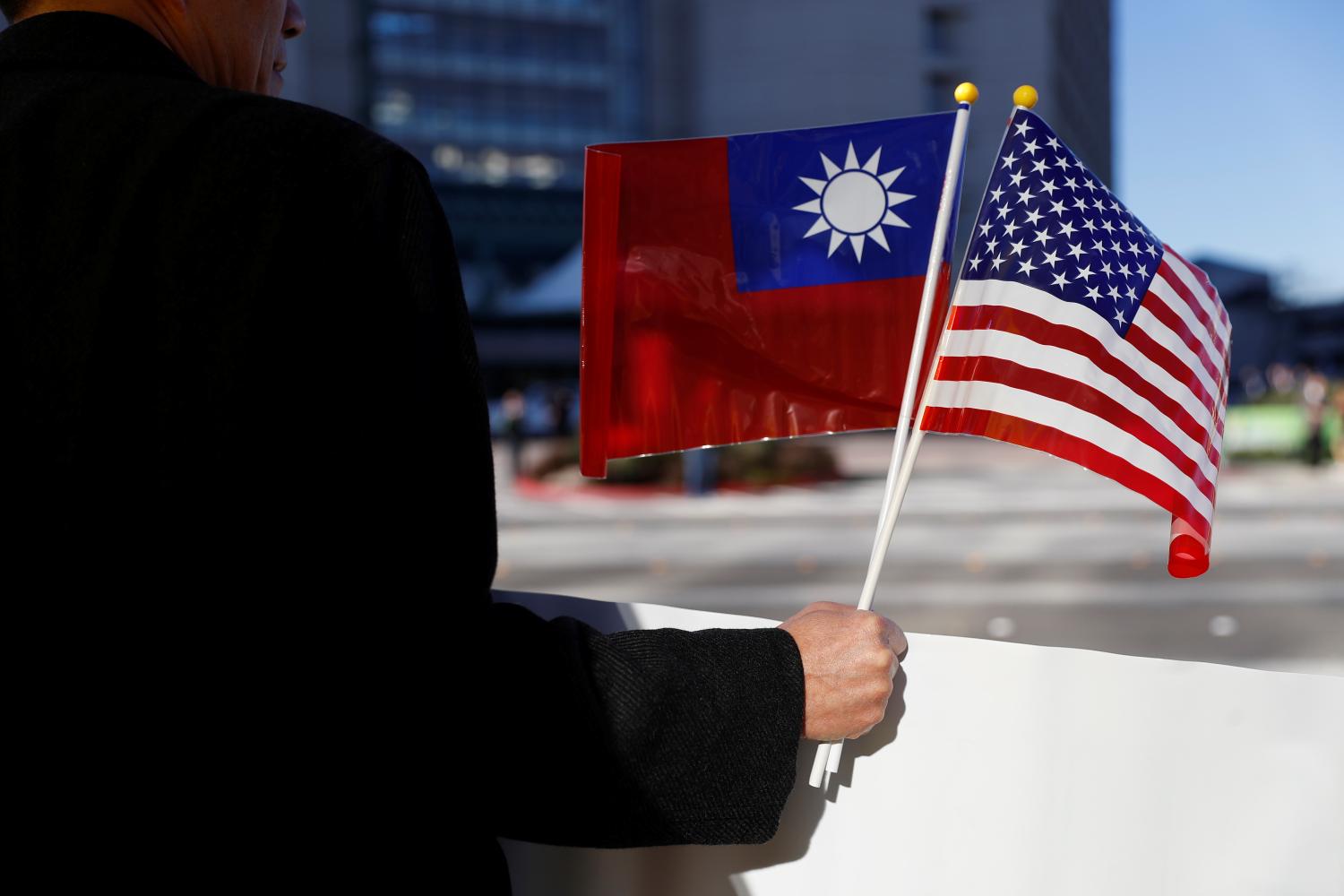
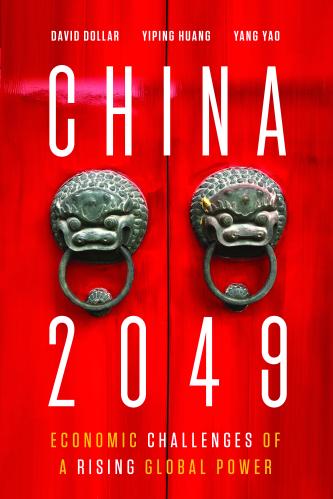
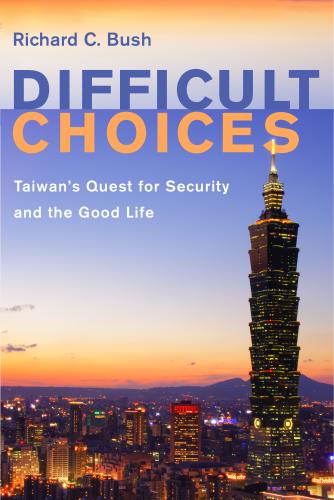
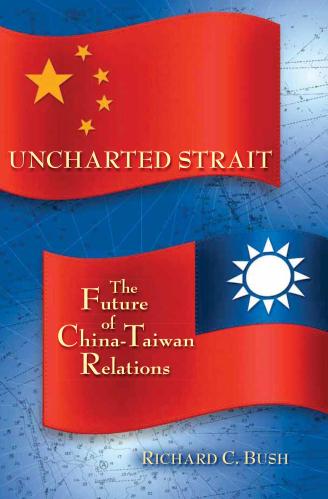
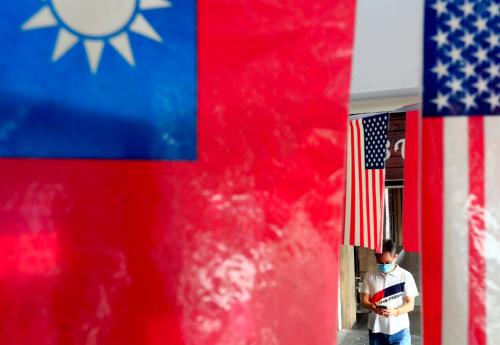
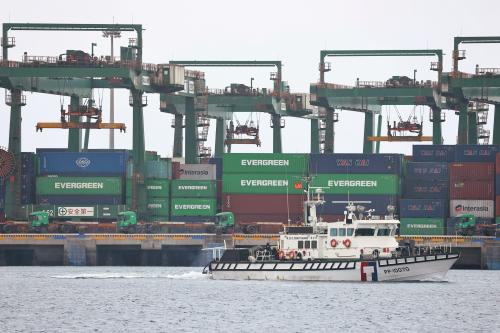





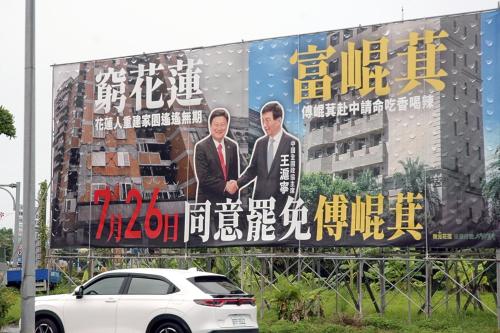


Commentary
How are people feeling in the “most dangerous place on Earth”?
October 13, 2021